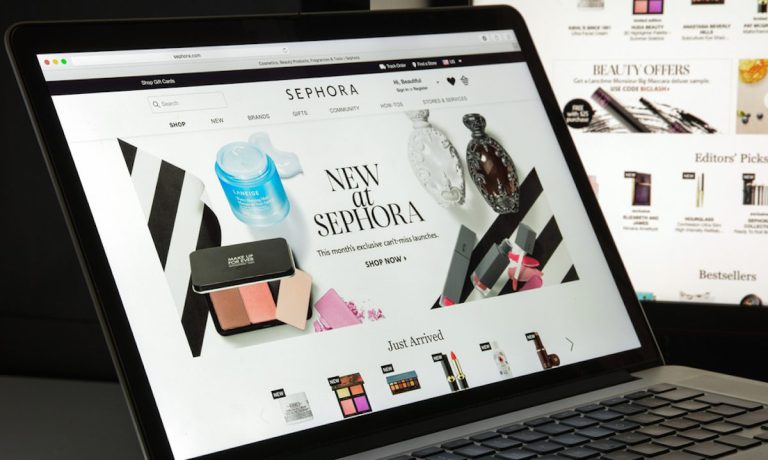
As consumers continue their exodus from pandemic isolation to see friends and family after many months apart, personal presentation is once again resurging, leading many retailers to seize on beauty as a driver of growth for the future.
Earlier this week, Target announced a partnership with Ulta Beauty that will see shop-in-shops open in over 100 Target stores and online in August. Over 800 shop-in-shops are expected nationwide in the years to come.
Similarly, JCPenney has unveiled plans for a new inclusive in-store and online beauty experience, set to debut at select stores in October. The brand, owned by Simon Property Group, is also partnering with beauty and wellness eCommerce platform Thirteen Lune to create a shop-in-shop experience. The nationwide rollout of JCPenney Beauty will begin in fall 2022.
JCPenney, for its part, is trying to replace a 15-year-old partnership with Sephora, which is moving its department store partnership to rival Kohl’s. Sephora shops will remain in JCPenney locations through late 2022, when they will likely be replaced by JCPenney Beauty, Thirteen Lune or another partnership. Nyakio Grieco and Patrick Herning, co-founders of Thirteen Lune, told PYMNTS that the partnership complements the company’s direct-to-consumer (D2C) business “and allows us to scale quickly and reach more customers.”
“As the pandemic begins to subside, we see consumers being more thoughtful and selective in their purchases while doing their own research on the beauty products, brands and people behind the brands,” Grieco and Herning said in an email.
The focus on beauty is also a recognition that consumers are pulling out all the stops to look their best — and offering a personal experience or the opportunity to try before buying is also a good way to lure consumers into the store, where they may pick up other items as well. For example, Target will have Ulta Beauty-trained employees to provide customers with beauty expertise, and JCPenney Beauty will have a similar experience.
Rising Demand
To be sure, beauty brands don’t need department stores’ help to reach consumers’ wallets. In May, e.l.f. Cosmetics reported that its net sales surged by 24 percent, fueled by eCommerce, and Sally Beauty Holdings said earlier that month that it has seen an acceleration in consumer demand in recent months. In reporting its second-quarter earnings, even Johnson & Johnson noted that skincare and beauty products through brands such as Neutrogena and Aveeno saw a 13 percent year-over-year growth in sales.
Analysts remain bullish about beauty going forward, with investment bank Raymond James recently upgrading Estee Lauder despite net sales still being lower due to “soft demand” for makeup. Estee Lauder’s North American department store sales have dropped to just 6 percent of total sales, down from 46 percent 20 years ago, as eCommerce has risen to about 30 percent and sales in China total about 25 percent.
President and CEO Fabrizio Freda said earlier this year that Estee Lauder is investing in “many compelling long-term growth drivers,” including a new innovation center in Shanghai, a manufacturing center near Tokyo and global digital capabilities. The beauty retailer’s shares are up over 21 percent year to date, compared to a 16 percent rise for the S&P 500. Ulta Beauty shares have risen 19 percent so far this year.
Going Digital
With 75 percent of consumers purchasing retail products online over the last 12 months, beauty brands are also embracing digital capabilities to reach consumers where they are. Earlier this year, for example, Pinterest launched an augmented reality (AR) try-on tool to help users assess and compare eyeshadow products from Lancome, YSL, Urban Decay and NYX Cosmetics; the social media company also has a similar feature for lipstick.
Snapchat last year partnered with Perfect Corp., a developer of AR for beauty brands, to offer makeup try-ons in its photo-messaging app, and Google followed suit last month to add beauty try-ons to its search results.
In an interview for PYMNTS’ Connected Economy research, Perfect Corp. CEO Alice Chang said that AR and artificial intelligence (AI) technologies are “the game-changer” for beauty brands. “We need to connect the beauty lovers and the beauty buyers with the brands,” she said. “Previously, that was always done through the store. Now it is digital, and we can give the users more power to try before they buy, give feedback and interact directly with the brand on the products.”